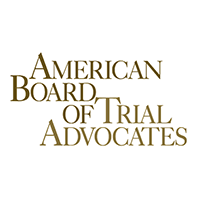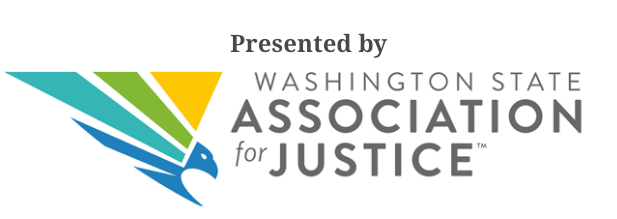Understanding Wrongful Death Laws in Washington State

Understanding our Washington wrongful death laws in Washington State is crucial to protect your rights and to seek justice for your family. It is a special area of law that not all personal injury lawyers are familiar with. Unlike other areas of negligence, wrongful death cases are guided by state statutes with special rules, and special damages, and only special beneficiaries are allowed to bring claims. It is important to work with a local lawyer who understands this unique facet of personal injury law.
Under Washington's statutory wrongful death framework, a wrongful death claim can be filed by the surviving family members of the deceased–this includes spouses and children as “first tier” beneficiaries. If there are no “first tier” beneficiaries, parents and siblings may also bring a claim under the law. The purpose of these laws is to provide compensation to certain family members identified by statute for the financial and emotional losses suffered because of the death. The statutes also allow the “Personal Representative” of the decedent's estate to bring the claim of the person who died for their losses–pain and suffering up to the moment of the death, medical bills, and funeral expenses, in some cases. The law seeks to ensure that the claim of an injured person “survives” their death and that someone is left behind who can tell their story and bring their claim.
Pursuing a Wrongful Death Action in Washington State
To pursue a wrongful death claim in Washington, you must prove four key elements: duty, breach of duty, causation, and damages. As in any negligence case, the responsible party must have first owed a “duty of care” to the deceased, violated that duty through actions of failure to act, and caused the death that resulted. Additionally, you must demonstrate the damages suffered by the surviving family members and/or the decedent.
The classic situation is an auto accident. Here, a driver owes a “duty of care” to other drivers on the roadway (and to passengers in their car) to follow the “Washington Rules of the Road” under RCW § 46.61 et seq. When a driver fails to do so, and their actions result in a high-speed crash that kills someone in another car (or even in their car), they have breached the duty of care. They are thus responsible, as a negligent driver, to the estate of the person who died as a result.
Another common scenario is a medical provider who owes a duty of care to her patients to provide medical care at a certain “standard of care.” When she fails to do so, and her care falls below this “standard of care,” she has breached this duty. She is thus responsible for a death that is “proximately caused” by her breach.
Oftentimes, these wrongful death damages are dependent on the degree of closeness of the relationship the deceased person had with the family member or members left behind. Thus, a long-term and close spouse's claim may be more valuable than that of an estranged child. Likewise, a child with whom a parent spoke every day would have a claim more valuable for the loss of that parent than that of a child who only spoke to a parent once a year. These issues can be overlapping, and complex and truly require a seasoned lawyer.
It is important to note that there is a statute of limitations for filing a wrongful death case in Washington State. Generally, you have three years from the date of death to initiate formal legal proceedings–filing a lawsuit. Failing to meet this deadline could result in your claim being dismissed and forever barred. Therefore, when pursuing a wrongful death claim, it is highly recommended that you immediately seek legal guidance from experienced attorneys who specialize in this area of law. They can provide invaluable support in navigating the complex legal process and ensuring your family's rights are protected.
Awarding Damages
In Washington State, damages awarded in wrongful death cases can include compensation for medical expenses, funeral costs, loss of financial support, loss of companionship, and emotional distress. The amount of compensation depends on various factors such as the age and earning capacity of the deceased, the extent of negligence or wrongdoing involved, and the impact on the surviving family members. There is a complex legal analysis under our wrongful death statutes, RCW § 4.20 et seq, as to exactly who and how much can be collected by certain types of heirs. A Washington State lawyer should be consulted right away to help the family determine if their claim is viable.
Get Started Today
Wrongful death cases can be emotionally challenging and legally complex, sometimes they require multiple legal actions, a probate to first appoint a personal representative, and a civil suit to pursue litigation against the negligent actor. Having compassionate and knowledgeable legal representation can make all the difference in achieving a fair and just outcome.
If you have experienced the loss of a loved one due to the negligence of a driver, a corporation, or a medical provider, reach out to consult with a reputable attorney who can guide you through the process and fight for your rights. Look for a lawyer with trial experience in Washington State, with statewide recognition from their peers, and who understands the statutory framework of wrongful death claims in Washington State.
Remember, you do not need to face this journey alone.






